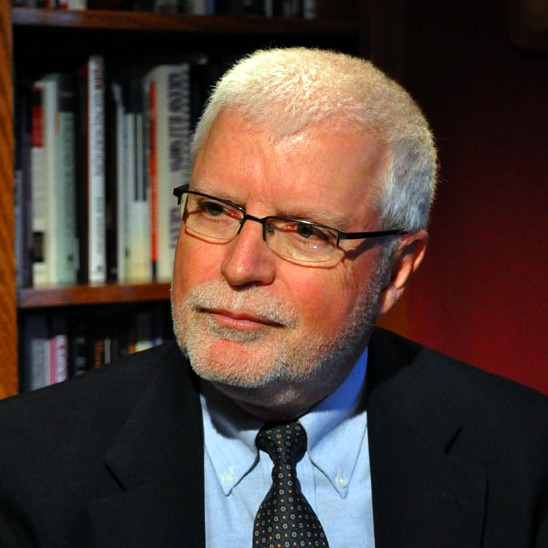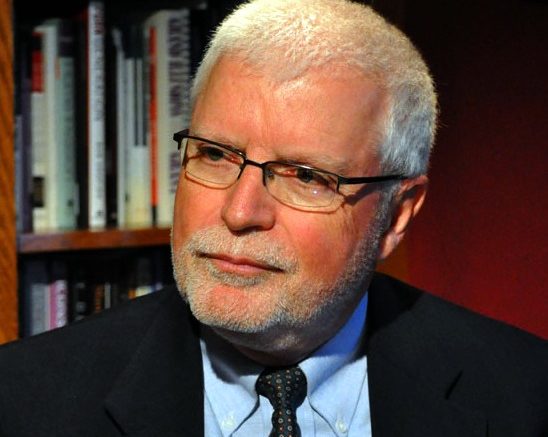 Why Do Some People Shun Engagement?
Why Do Some People Shun Engagement?
Speaking out on issues of Biblical Truth and Moral Virtue is often a challenge for many of us. Doing so will inevitably invite strong and sometimes hostile push back from people who, for a variety of reasons, don’t want to hear it. The result can get ugly, and we don’t like to get involved.
That is what Tom Minnery describes in his outstanding book entitled Why You Can’t Stay Silent: A Biblical Mandate to Shape Our Culture. He begins by describing the experience of a grassroots movement that became known as the Moral Majority.
Founded in 1979 by a Baptist minister in Lynchburg named Jerry Falwell, it was inspired by a deep concern for the moral decay that he saw taking place in America and a conviction that something had to be done – including fighting for public policies that reflected Biblical values and high moral standards.
Isn’t that something we should all have supported? Apparently not.
The Pushback
Several nationally known evangelical leaders such as Cal Thomas and John MacArthur became sharply critical of Moral Majority and even wrote books in which they charged that:
1. Moral Majority’s efforts don’t work because government can’t fix America’s moral ailments. In their view, the only answer is through quiet, persistent evangelism rather than through politics.
2. Its leaders had become seduced by the lure of politics and became driven more by personal ambition and a drive for political power than by moral principle.
They even began to attack people like Falwell and Dr. James Dobson from Focus on the Family as “rabble rousing malcontents” who were too “zealous” in their push for moral and political reform. Consequently, for their part, they chose not to become sullied by the “nasty business” of politics.
Unfortunately, these critics refused to recognize that government could become a powerful voice for good and that the church could and should be involved in that effort.
They also failed to recognize that this is a “Calling” for some, just as “evangelism” and “humanitarian relief” is a calling for others.
Finally, they appeared unwilling or unable to accept the harsh criticism that the secular culture and a liberal media hurled their way. They chose to remain silent perhaps in part because they didn’t want to disturb the comfort zones they had developed for themselves.
Is Activism Always Ugly?
That leads to the challenge of being able to deliver hard truths in a way that doesn’t unnecessarily trigger hostile push back like that described above – and even worse. It that possible, or is it the message itself rather than just the style of delivery that provokes these harsh criticisms?
To answer that question, Minnery cites the example of William Wilberforce, the English parliamentarian who fought for the “Reformation of Manners” and an end to abortion in the late 18th and early 19th centuries.
In his own way, Wilberforce demonstrated a personal style similar to that of William Booth and John Wesley, also English leaders who were active crusaders for virtue in their respective areas of influence and who Minnery described in an earlier chapter of his book.
Wilberforce eventually succeeded for several reasons, including his single-minded persistence in the face of opposition, his intellectual fire-power and eloquence, his broad record of achievement and recognized stature in the church and in politics, and the humility and grace with which he related to all – friend and foe alike.
Minnery also cites the example of former Congressman Henry Hyde, who led the impeachment hearings of then President Bill Clinton in the late 1990’s and who explained his own achievements by simply trying to treat everyone with respect.
But so what? What does that mean for us as we watch the moral meltdown in our culture today? Do we shun engagement because of the predictable push back? Or do we press forward like those heroes of the faith described above, ever clear and ever faithful in standing for truth?
Crossroads: Why You Can’t Stay Silent
That’s the background for what Rita Dunaway and I will discuss this weekend on Crossroads: Where Faith and Culture Meet. It is Part V of our review of Why You Can’t Stay Silent by Tom Minnery that will air this weekend on one of the following Valley stations:
— WBTX (1470) at 4:30 today and again tomorrow (Sunday) at 7:30 a.m., followed by WSVA (550) and WSVA/FM (92.1) at 8:30; and WNLR (1150) at 11:30. You can also listen online HERE anytime.
Crossroads is entirely listener supported. If you would like to help, please send your check to Crossroads at PO Box 881, Harrisonburg, 22803. All donations are tax-deductible.
For God and Country,
Dean

